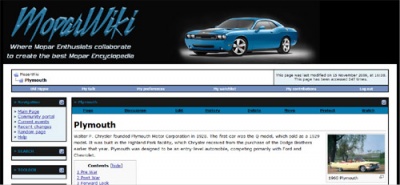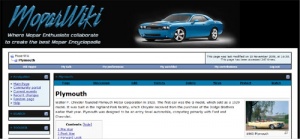1954 Dodge Granada
Click the edit tab and copy entire text to paste into a new Dream car Wiki, remove this line from new Wiki.
Intro: Replace this line with a short paragraph, such as: Dodge introduced the Charger in 1966 as a competitor to the sporty Fastback roofline cars offered by Ford and Chevrolet.
This Wiki is Under Construction, and can use your help!
Please take a moment to add any information you might have on this topic. It is through this type of Member collaboration that the MoparWiki will grow into being the Ultimate Mopar Infobase. The links contained in the Understanding Wikis box in the sidebar can help you get started.
Contents
Background
Background of The Exner Era Dream Cars
Quick History of Exner
In 1932, A 23-year-old Virgil Exner was hired by GM's Art and Color Studio. Boss, Harley Earl immediately recognized Exner's design talent. Two years later Enxer was put in charge of the entire Pontiac Studio, a job he kept until 1939 when Raymond Lowry hired him to work on his studio's design contract with Studebaker. Exner worked with Lowry and Studebaker all through WWII, and when the highly advanced 47 Studebaker's were shown to the public in 1946, they were touted as "The First By Far With A Post War Car. It would be the 1949 Model year when the "Big Three" would catch up.
A dispute between Lowry and Exner over credit for the design of the 52 Studebaker caused Exner's firing. Studebaker wasnt impressed with the Lowry proposal for the 52s, and Exner showed them a design he'd been working on at home on his own time. Studebaker liked it and Lowry wanted credit for his employee's work. He was fired when he refused, but Studebaker picked Exner up for their in-house design team. There was little love between Lowry and Exner for the rest of each of their lives.
In 1949, Chrysler President K. T. Keller hired Exner away from Studebaker for the purpose of designing cars that would improve Chrysler's stodgy image. The Chrysler Corporation was well known for its engineering firsts, but not its styling. The Chrysler Corporation's "Small on the Outside - Big on the Inside" designs looked ancient when compared to the 49 Ford and GM offerings. Keller wanted the cars designed to where a man could drive with his hat on. This made the cars appear too tall.
At first Exner worked secretly on Advance Designs, but was soon promoted to head the studio. The model year designs were already locked in through 1954, so Exner began work on the 1955 model, the first year of the "Forward Look" designs.
Keller and Exner agreed that they should step up Chrysler's showing of Dream Cars to compete with Harley Earl's million dollar dream cars displayed in the Motorama shows. They felt this would create excitement with the public on updated designs that would hit the showrooms in the future. However, they would have to do it on a budget no where near the size GM had given Earl.
Exner and Ghia
While working on his first of the Chrysler Dream Cars, the K-310, Exner and his design team were at an impasse. On a previous trip to Italy, K. T Keller commissioned both Pininfarina and Ghia to each build a car of his loose design specs, but allowed them design creativity. The purpose was not to test their design skills, but to test them for quality, fit and finish.
Knowing that the Exner team was having trouble with K-310, Keller invited the team to view the cars that had just arrived from Italy. Pininfarina had closely followed the specs, while Ghia took great liberties with their allowed creativity. Ghia's car was very impressive. The Ghia submission was also far better in quality, fit an finish than the submission from Pininfarina. It was to became the Plymouth XX-500 show car. In addition to Ghia's craftsmanship, their design abilities were a pleasant surprise.
This began the long relationship between Chrysler and Ghia, and more importantly - collaboration between their designers.
Designer
Chassis
Body
Interior
Drivetrain
Car Shows
Movies Appeared in
Magazine Articles
Reference
Internet Links
- MoparStyle.com http://www.moparstyle.com/forums/
Random Page | Longest Wikis | Oldest Wikis | Newest Images | Newest Wikis | List of Categories | List of Every Freakin Wiki
- Register to Edit
- It takes less than 5 minutes to request registration for editing, and we try to approve within 24 hours. Click the Register Link in the Top Bar.
- MoparWiki Help
- While editing Wikis may at first glance appear a little overwhelming, it really isn't. You will find this site's HELP (link found in the sidebar) to be very strong and easy to understand. The best way to start is with small edits and working on your user page -- and you will become a Pro in no time.



